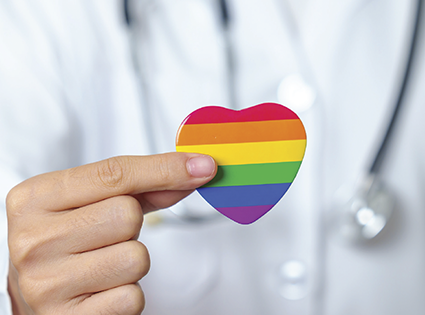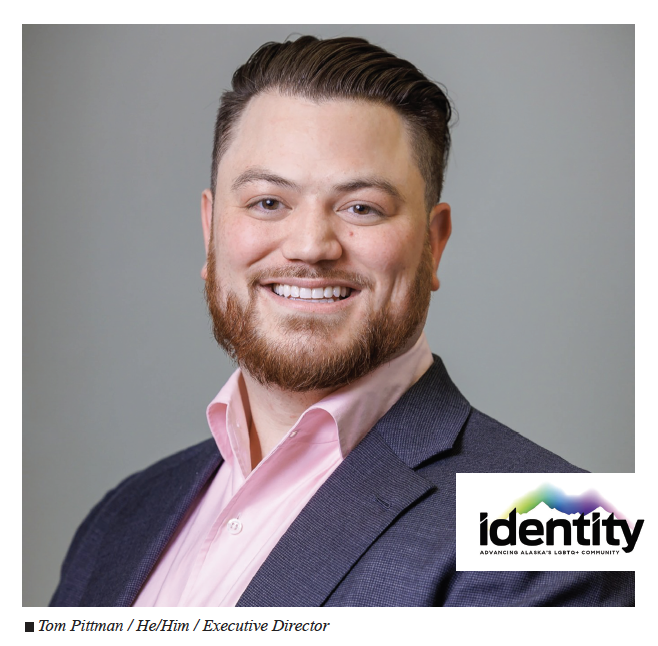LGBTQIA2S+ Community Needs Specialized Health Care
In January, Identity Clinic, Alaska’s only LGBTQIA2S+ clinic, appointed Tom Pittman as executive director to begin its statewide expansion, which will include patients of diverse identities, including Hispanic. “Our commitment to inclusion and equity goes beyond the acronym LGBTQIA2S+,” he told Sol de Medianoche.Identity is a nonprofit organization dedicated to serving the LGBTQIA2S+ community. “Our clinic prioritizes inclusive health care with an emphasis on wellness,” says Tom Pittman.
Pittman holds a Master of Health Administration (MHA) degree from the University of Washington. He has more than a decade of experience managing outpatient clinics, tribal health departments, retail, and specialty practices, and has supported health care for his tribe, the Tlingit, through the Southeast Alaska Regional Health Consortium. “Our mission extends beyond Anchorage,” he says, “to improve access to quality health care. Nearly half of our care is delivered via telemedicine.” Identity is not the only LGBTQIA2S+ clinic in the country. “Many others provide specialized medical services to this community, reflecting the need for targeted care for them,” he says. In a health care system with inefficiencies, providing non-discriminatory medical services is critical, especially in primary care. “LGBTQIA2S+ Alaskans face unique challenges and need providers who understand them,” he says. “We will assess all of their needs in terms of economic issues, language, housing, transportation, and areas that are underserved due to geographic location or certain treatments.” The clinic has one provider who speaks Spanish. Sexually transmitted diseases are the greatest threat to sexually diverse people. HIV is the most feared, but health officials have warned of an increase in syphilis. For Pittman, “the risk of sexually transmitted diseases (STDs) does not depend on sexual orientation. We need to destigmatize LGBTQIA2S+ relationships and support better sex education. In Alaska, the LGBTQIA2S+ community faces health challenges that are compounded by other states with restrictive laws. The rise of syphilis complicates care, and Identity has organized pop-up clinics, four of which were held in February. As for telemedicine, Identity’s new director sees it as “a boon for remote areas. It motivates us to expand our reach in the state and ensure accessible care for those who need it most, regardless of their location. This bridges the geographic divide and creates an inclusive health care environment. According to Tom Pittman, the sexual health of Latinos is no different than the rest of the population. “It is deeply personal and requires an approach that is as diverse and nuanced as socioeconomic and educational status, living conditions, and language and cultural barriers. Addressing these barriers is essential to ensuring clear communication, building trust, and providing quality care.” |

